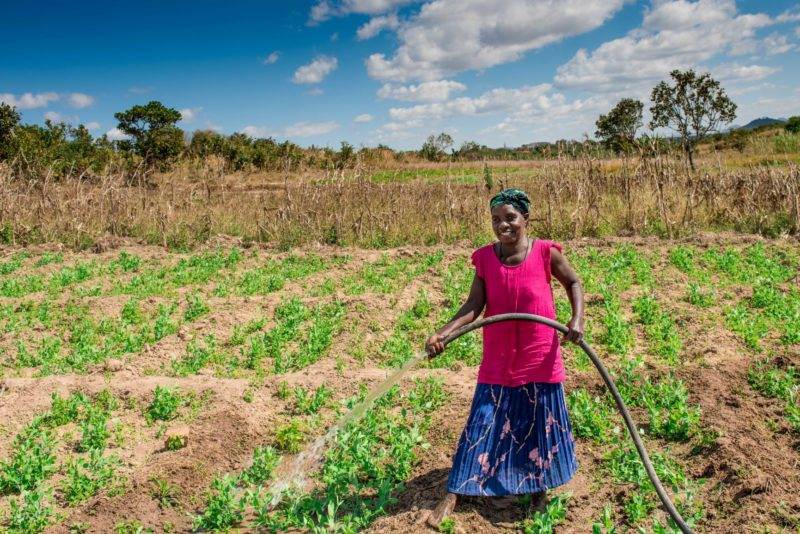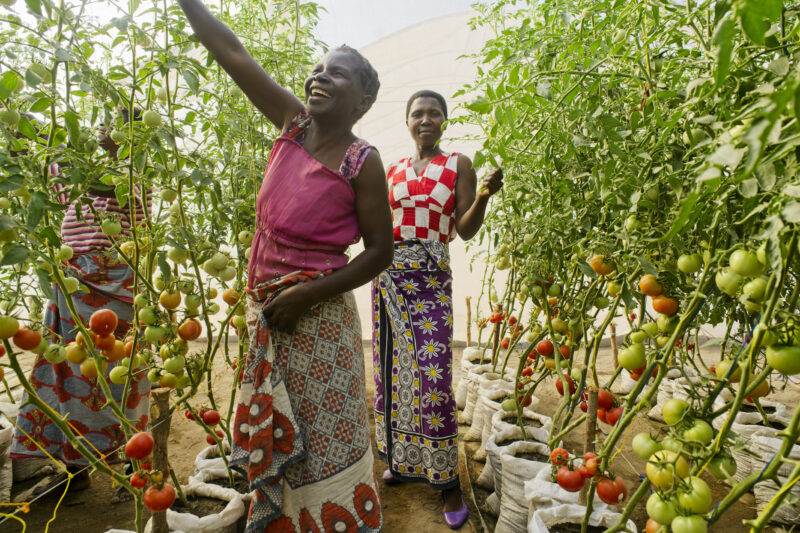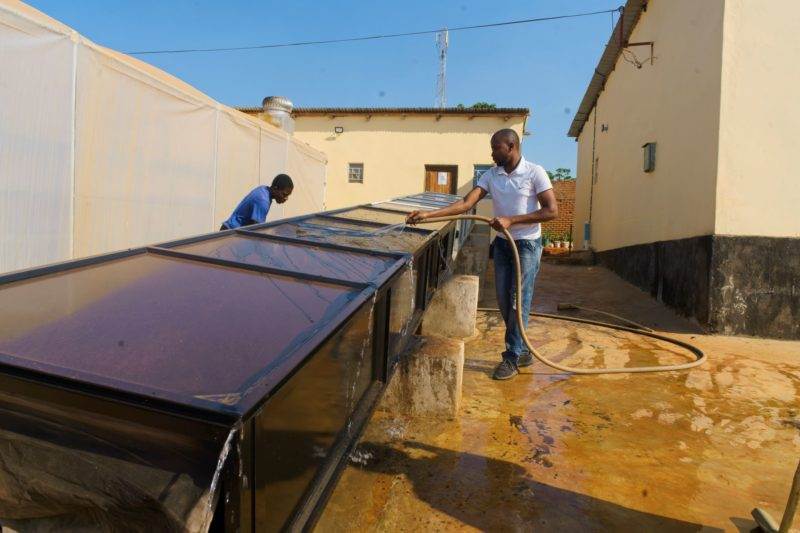In northern Malawi, a combination of modern farming technologies and well-organized farming groups has significantly reduced the number of hours women spend on the farm and increased their annual income by a staggering 154%.
With more time on her hands, Jane, a mother of three has been able to take on entrepreneurial ventures in the last couple of months. She explained; “In our designated women groups, we work in shifts of 3 farmers per greenhouse, and so far, our model is working just fine. Every week I spend 14 hours on the farm; 1 hour in the morning and 1 hour in the afternoon. Household income has significantly increased and with more time to invest in business, my decision-making, and entrepreneurial skills have also improved”.
One year after the launch of the Powering Renewable Energy Opportunities funded renewable energy for agriculture project, two farmers Lydia Phiri and Jane Mwase, shared their life experiences both before and after signing on the project.
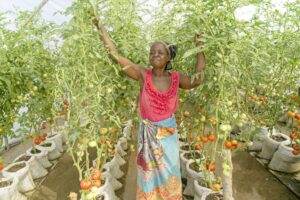
Stelia Mwale
Lydia, a single mother of 4 children, is the head of her household and sole provider. Up until June 2021, she and her family were dependent on cassava, maize, and rice farming – common staple crops widely farmed by smallholder farmers and sold to vendors who largely dictate the market price. The hot and extremely unpredictable weather along the lake shores meant that Lydia was only able to farm during the rainy season and sales from her harvest often left her short of meeting the cost of living for her young family.
Struggling financially, Lydia explained; “As a single parent, I often had no choice but to spend most of my income on my family. Buying farming inputs like fertilizer and getting extension services became nearly impossible. With limited farm inputs, no marketing skills, and a lack of knowledge about alternative farming methods, navigating harvest cycles was problematic. I signed on to the project as early as 2021 because I wanted to change my circumstances and my life. I needed money.”
Women who sign on to the project in farmer groups leverage the benefits of greenhouse farming and productive use technologies which allow them to:
- Grow tomatoes in greenhouses
- Grow crops all year round and generate more income
- Increase production levels in a pest and disease-controlled environment
- Reduce the amount of work that would otherwise be done by an individual farmer
- Benefit from irrigation technology which has made farming efficient and and chilling technology which has added value to their produce
Lydia and Jane noted that working in a controlled environment has simplified farm management. With the use of polytunnels, farmers are able to spend less time on pest control which is done occasionally or in some cases, not at all.
With more time on her hands, Jane, a mother of three has been able to take on entrepreneurial ventures in the last couple of months. She explained; “In our designated women groups, we work in shifts of 3 farmers per greenhouse, and so far, our model is working just fine. Every week I spend 14 hours on the farm; 1 hour in the morning and 1 hour in the afternoon. Household income has significantly increased and with more time to invest in business, my decision-making, and entrepreneurial skills have also improved”.
All 45 greenhouses in Nkhata Bay are now functional with 135 women engaged in income generating activities. All farmers received training on modern crop growing and post-harvest management, to date the women produce between 100kg to 1000kg of tomatoes per week.
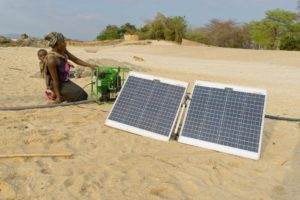
Pictured left – Grace Chiumia. A solar water pump used to pump water from Lake Malawi to the greenhouses
The integration of renewable energy technologies and modern farming techniques has helped farmers respond to the changing climate. Agriculture experts at MFT are constantly working with farmers to adopt innovative climate-resilient approaches. Jane remarked; “The temperatures by the lake are relatively high, so we often use shade nets to reduce temperatures in the greenhouse and solar pumps to obtain water from the lake. The only major challenge we’ve faced is closely related to the difficulty we’ve had with the local climate.” MFT’s continued effort means the farmers have easy access to extension services, this has contributed to project sustainability.
In closing, both Lydia and Jane expressed that the highlight of the project has been the rent-to-own scheme which allows farmers to retain the equipment after a set pay-back period.
“I enrolled in the project to make more money to support my family, but over the last couple of months, I have gained a lot more. I’ve gotten the chance to learn how improved farming works; making manure, planting other types of crops, tomato trellising and de-suckering, pest and disease management, and how to use a solar irrigation pump – which I will one day own. Knowing that I will own the greenhouse and the pumps just makes me feel happy. Other women who’ve recently signed onto the project feel the same, we’re all committed to the pay-back period because we’ve never owned equipment or assets.” – Lydia.
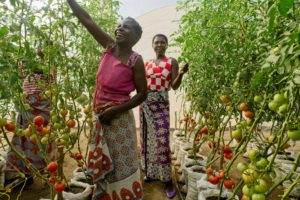
Mirriam Phiri (front) and Eli Mhone (back)
Meet the staff at Modern Farming Technologies who are making this project happen.
